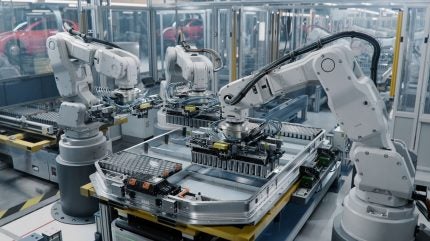
The European Commission is set to introduce measures aimed at increasing demand for electric vehicles (EVs) and mandating more locally produced batteries in the EU, reported Reuters.
The Commission’s automotive action plan is designed to aid EU car manufacturers in electrifying their fleets and maintaining competitiveness with more advanced Chinese and US counterparts.

Discover B2B Marketing That Performs
Combine business intelligence and editorial excellence to reach engaged professionals across 36 leading media platforms.
The draft proposal outlines potential actions for the 27 EU member states to expedite EV adoption, especially in company car fleets, which represent around 60% of new car sales in the bloc.
The Commission intends to collaborate with EU nations to determine the best incentives for EV purchases and explore funding options.
It suggests exempting zero-emission heavy vehicles from road charges, addressing concerns such as the decline in sales of new EVs.
According to the European Automobile Manufacturers’ Association (ACEA), EV sales in EU dropped by 5.9% in 2024 due to inadequate charging infrastructure and the cessation of subsidies in Germany, alongside a scarcity of affordable EV options.
The Commission is also considering financial support for battery production, including foreign companies that collaborate with EU firms to share expertise and technology.
Proposals are being developed to set conditions for inbound foreign investments in the automotive sector and provide funding for battery recycling facilities.
EU carmakers, facing potential US tariffs and factory shutdowns, have appealed to the Commission for exemption from fines that could reach €15bn if they fail to meet 2025 CO2 emission limits.
While the draft doesn’t specify financial relief measures, Italian auto lobby group ANFIA has called for more decisive action, such as cancelling the planned fines.
Last month, E-Mobility Europe has urged the EU to maintain the 2025 CO2 emission targets while introducing incentives for EV purchases instead of waiving fines.
The organisation points to the imminent release of several new EV models priced under €25,000 and has suggested that the EU could use tariff revenues from Chinese-made EVs or repurpose unspent Covid-19 relief funds to support consumer incentives.






